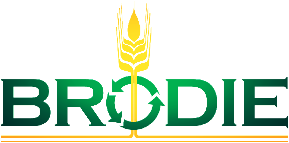CFIA has confirmed it will implement a transition period for the feed, water and rest requirements for bovine and other sectors. During the first two years, the CFIA will focus its enforcement efforts on compliance promotion through education and awareness measures, which are part of the CFIA’s continuum of enforcement actions.
The amended regulations contain outcome-based requirements to ensure animals are not likely to suffer (from exhaustion, dehydration, weather or other conditions), be injured or die. The CFIA has the discretion to appropriately enforce these outcome-based requirements to prevent and act on animal welfare situations.
New research aims to identify best practices for robotic milking technologies
New research launched in 2018 is investigating ways to maximize efficiency of robotic milking systems and optimize cow health within those systems. The project, led by Dr. Trevor DeVries of the University of Guelph, is very timely – about 11% of farms enrolled in a milk-recording program in Canada now use robots, and the adoption of this technology continues to increase.
“Considering the number of farms using robotic technology and the potential for growth, there are still gaps in our knowledge on the best strategies farmers can use to address some of the challenges we identified in the Dairy Research Cluster 2 research,” DeVries said. “This new research will build on those results.”
The researchers will be identifying cow-level and herd-level factors that influence milk production, cow health and the efficiency of robot use in a large-scale sample of dairy farms. The information will be used to identify best management practices to help farmers using robotic systems produce milk more efficiently and maintain excellent dairy cow health. This will include a specific focus on health in early lactation and feeding practices in robotic barns, based on barn design and layout, for all stages of lactation.
This is the first unbiased study of its kind to investigate robotic milking technologies on farms across all provinces, using data collected in collaboration with Lactanet. The research team includes top Canadian experts in the fields of dairy cattle health, farm management and nutrition.
“We look forward to developing some very practical independent information for Canadian dairy farmers that is science-based and supports their application of the technology in the most efficient way,” DeVries concluded. ![]()
For more information on the project, visit Dairy Farmers of Canada.
Founded in 1934, Dairy Farmers of Canada (DFC) is the national organization which defends the interests of Canadian dairy farmers and strives to create favourable conditions for the Canadian dairy industry. Working in accordance with supply management principles, DFC promotes safe, high quality, sustainable and nutritious Canadian dairy products made from 100% Canadian milk through various marketing, nutrition, policy and lobbying initiatives. Driven by a strong sense of community and pride, DFC and Canadian dairy farmers actively support a number of local and national activities. Visit dairyfarmers.ca for more information.










